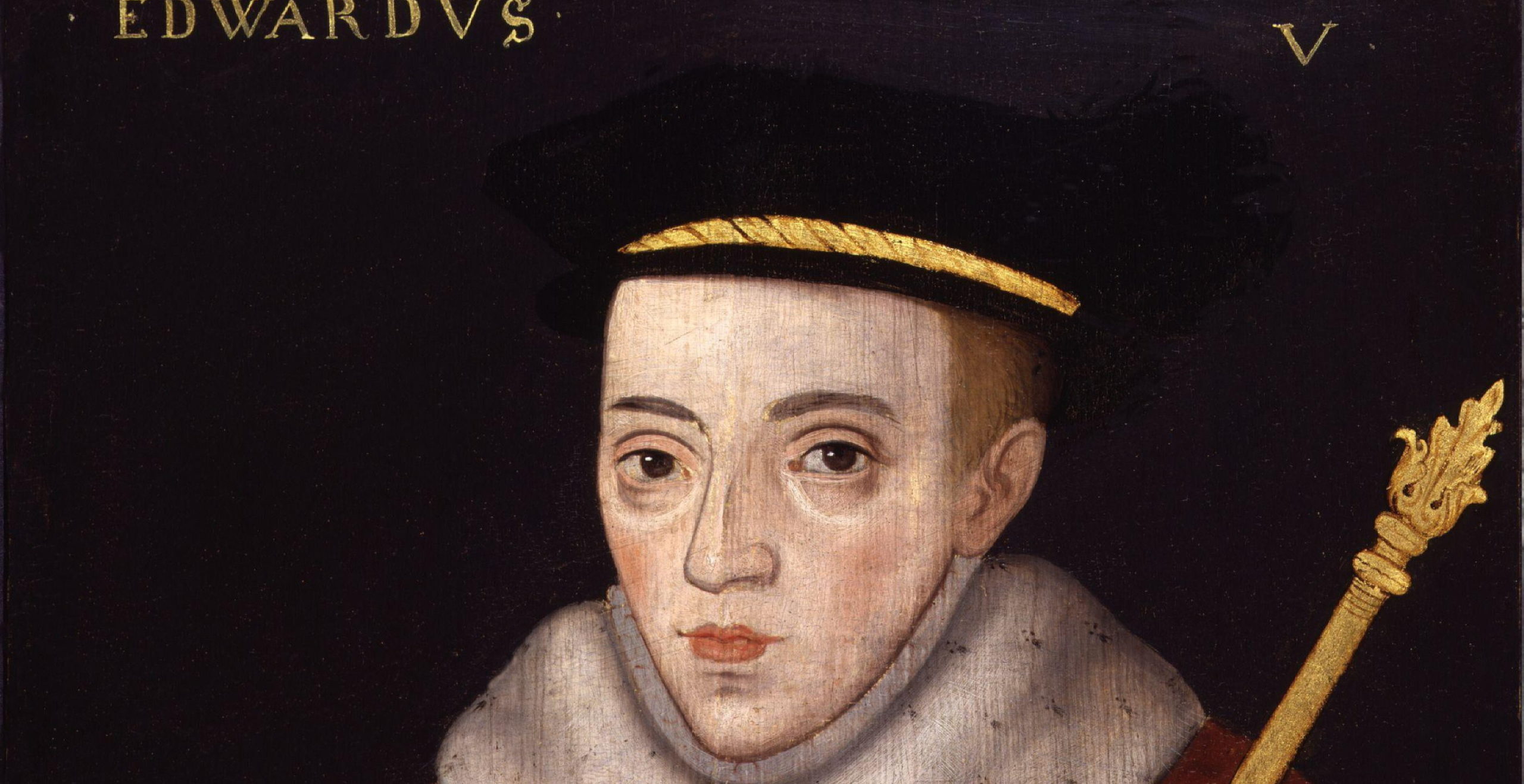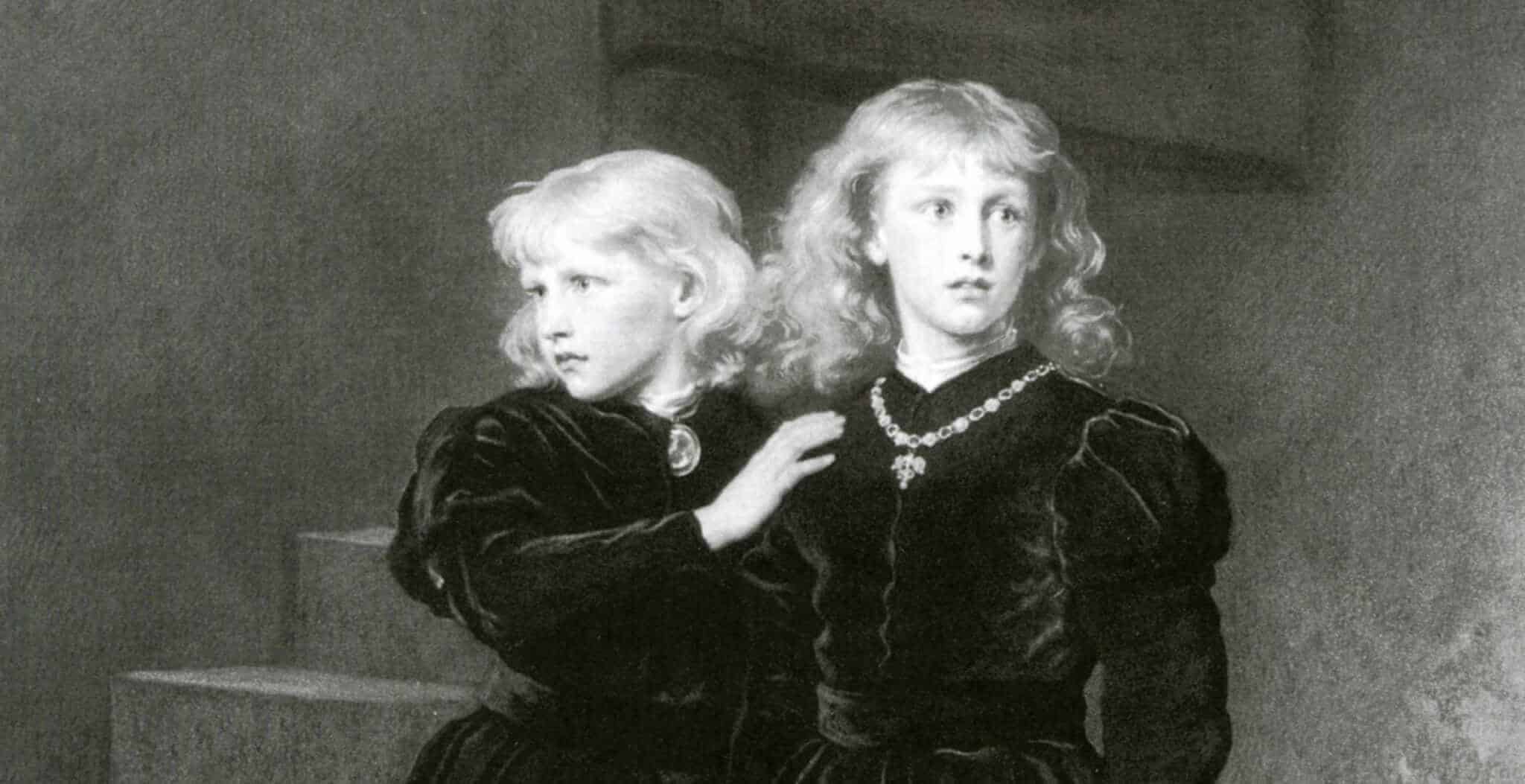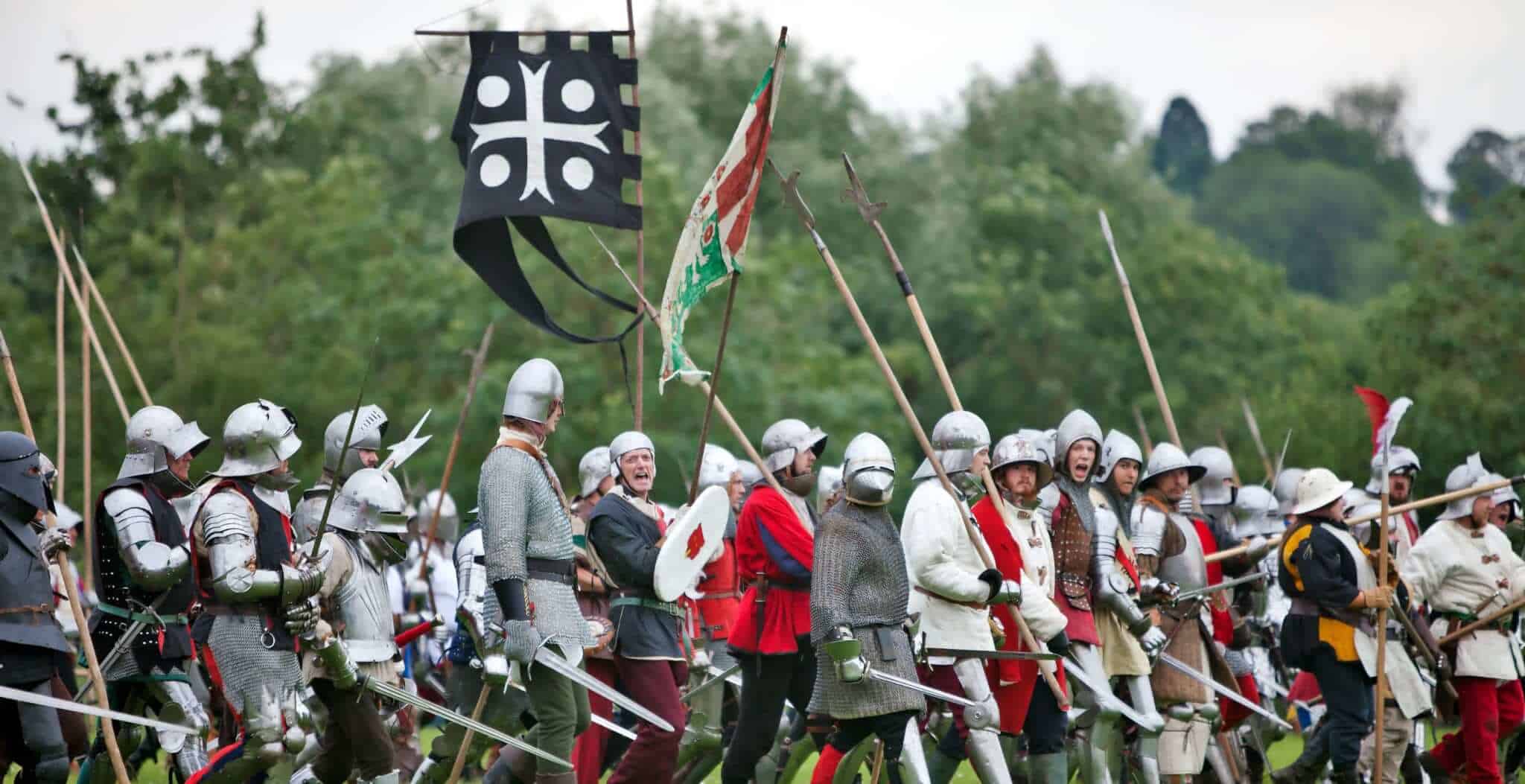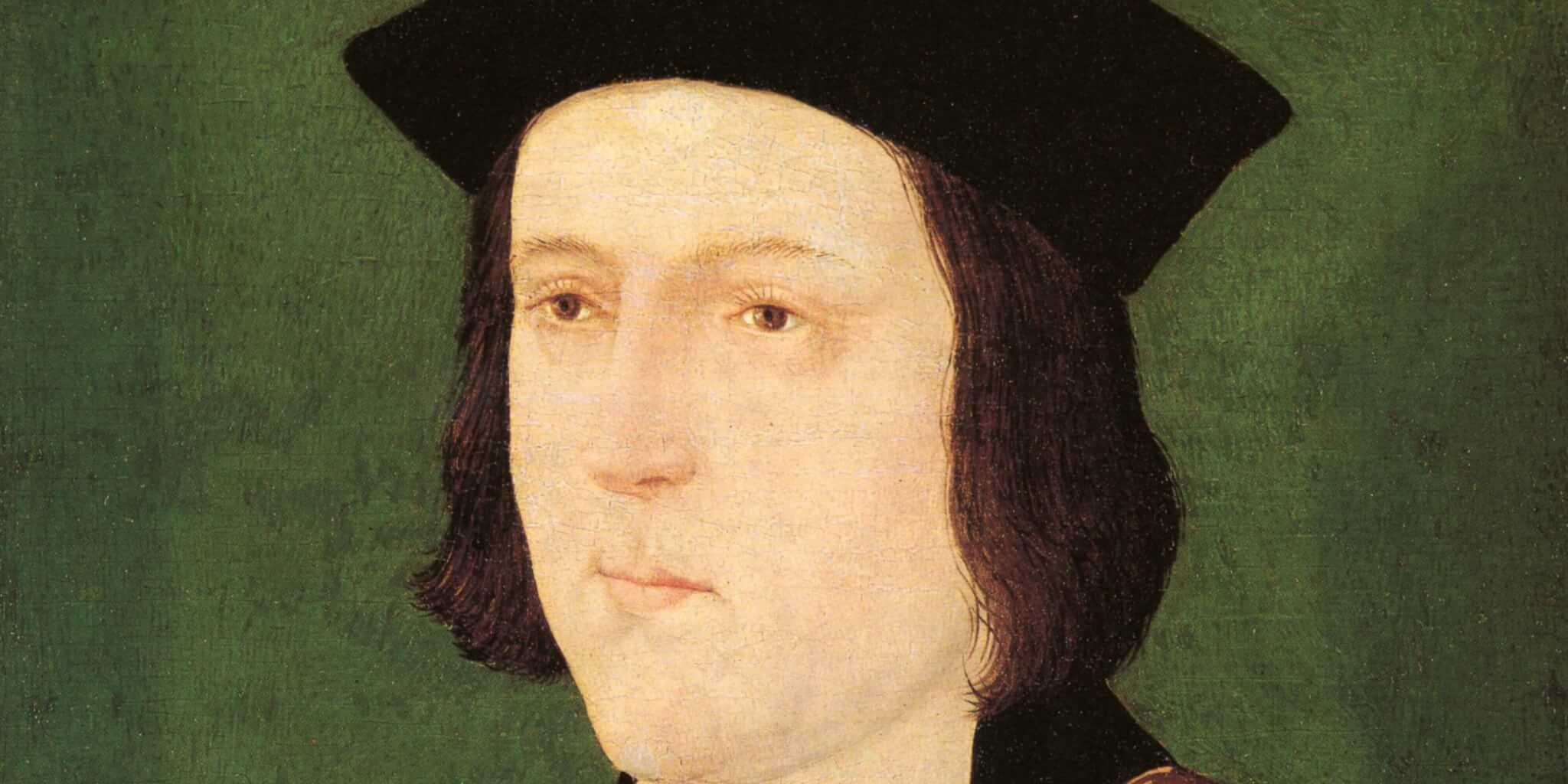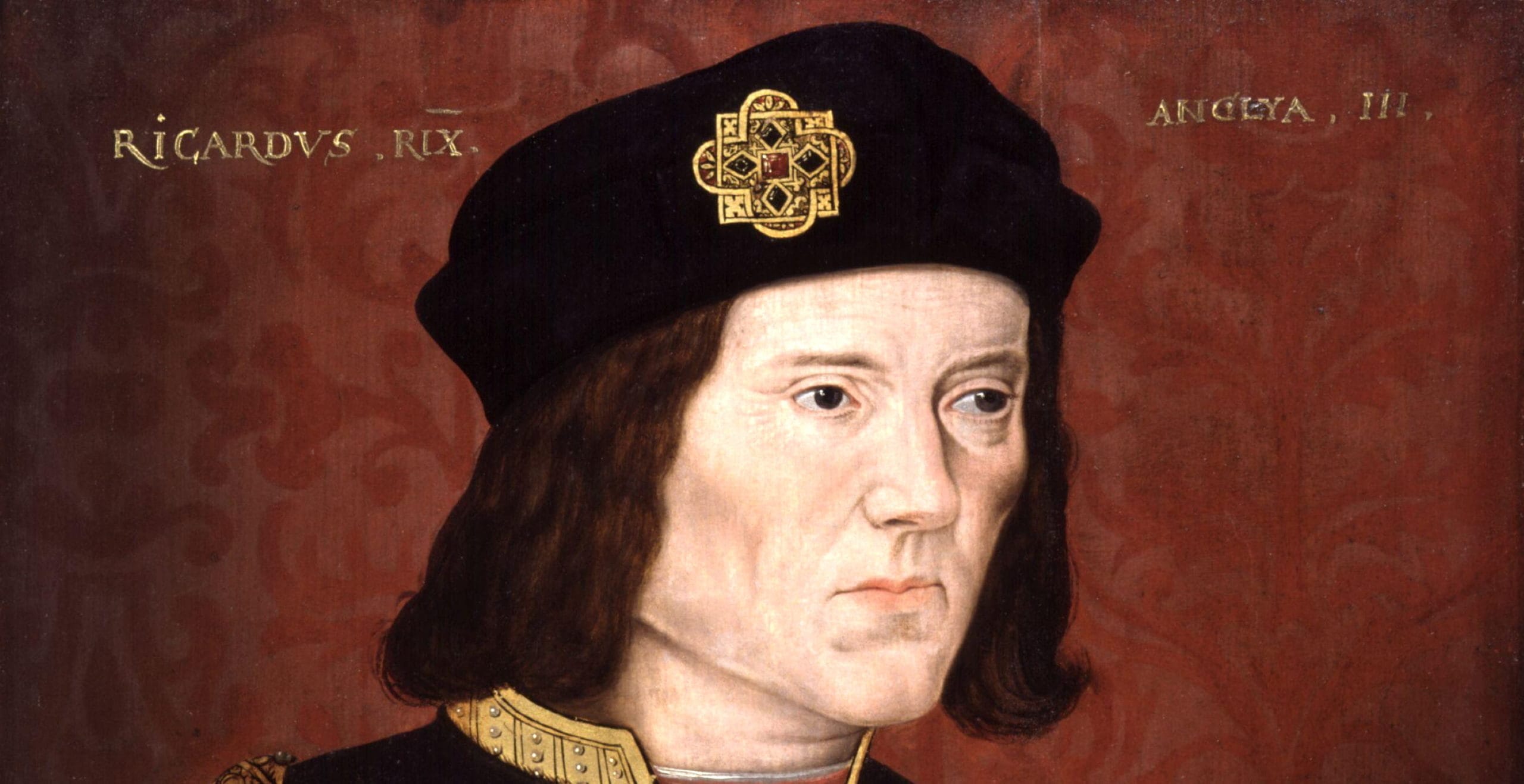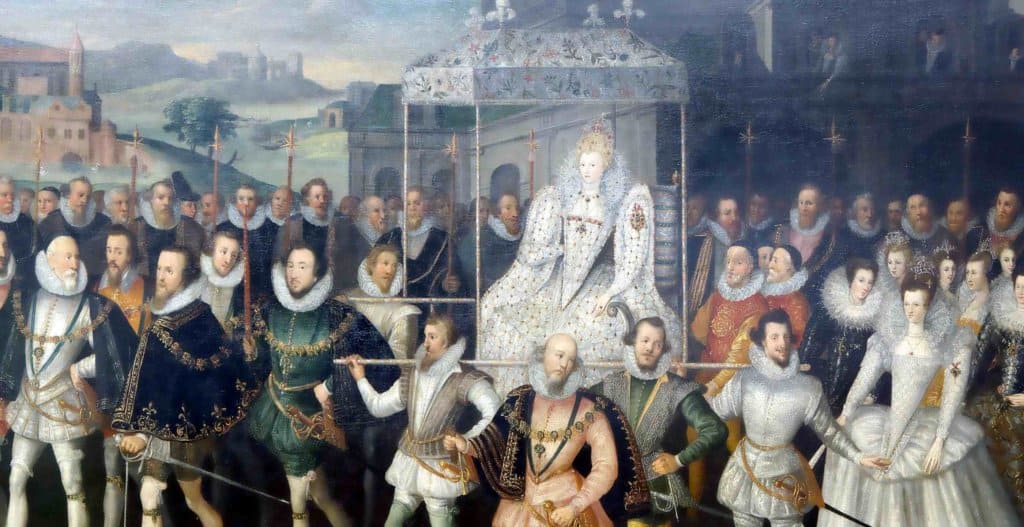Edward V was King of England for only two months.
At only thirteen years of age, he met an untimely and tragic end at the Tower of London, imprisoned alongside his brother and later murdered in mysterious circumstances.
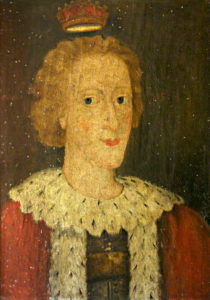
Born on 2nd November 1470, his father was the Yorkist king Edward IV, whilst his mother was Elizabeth Woodville. He was born at Cheyneygates, the adjoining house at Westminster Abbey where his mother had been shielding from the Lancastrians.
Young Edward had been born into tumultuous times, in the midst of the epic dynastic battle known as the Wars of the Roses.
His father, who at the time of his birth had been in exile in Holland, soon reclaimed the throne as Edward IV and entrusted his one year old son with the title Prince of Wales in June 1471.
At only three years of age, he was sent to Ludlow alongside his mother, where he would spend much of his childhood.
As a young boy, his father had entrusted Anthony Woodville, 2nd Earl Rivers who was also young Edward’s uncle, to be his guardian. He also happened to be a scholar and was given a rigorous set of instructions which he must adhere to in the upbringing of young Edward.
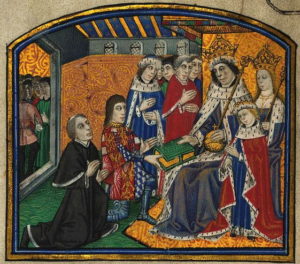 ‘Dictes and Sayings of the Philosophers’ was one of the earliest printed books in the English language, translated by Anthony Woodville, 2nd Earl Rivers and printed by William Caxton. Here Rivers presents the book to Edward IV, accompanied by his wife Elizabeth Woodville and son Edward, Prince of Wales. Minature c.1480
‘Dictes and Sayings of the Philosophers’ was one of the earliest printed books in the English language, translated by Anthony Woodville, 2nd Earl Rivers and printed by William Caxton. Here Rivers presents the book to Edward IV, accompanied by his wife Elizabeth Woodville and son Edward, Prince of Wales. Minature c.1480
A typical day consisted of an early church service followed by breakfast and then an entire day of schooling. Edward IV was keen to have positive influences on his son, guided by religion and morality. His day-to-day activities were following the strictest guidelines as given by his father.
Clearly, despite the ongoing conflict of the Wars of the Roses, his father paid a great deal of attention to crafting his eldest son’s future. This planning extended to an arranged marriage, agreed to in 1480 to form an alliance with Francis II, Duke of Brittany. Young Prince Edward was already destined in his betrothal to the Duke of Brittany’s four year old heir, Anne.
Such arrangements were not unusual for the time, as the union would hold important political and military significance, securing territory and titles. The two young children Edward and Anne had their entire lives planned out, even to the point of making considerations for when they would have children, the eldest of whom was destined to inherit England and the second Brittany.
Alas, this betrothal was never to be realised as poor Edward would face a cruel fate which cut his life very short. Anne would instead make an important match by marrying Maximilian I, the Holy Roman Emperor.
At the age of twelve Prince Edward had already had his fate sealed when one fateful day, on Monday 14th April 1483, he heard news of his father’s death. And so in the midst of conflict he became Edward V, a young king who would have the shortest reign of any English monarch, lasting only two months and seventeen days.
His father, Edward IV, had made arrangements to have his own brother, Richard, Duke of Gloucester serve as Edward’s Protector.
The royal council meanwhile, dominated by the Woodvilles, Edward’s family on his mother’s side, wanted Edward crowned immediately and thus avoid the protectorate under Richard, Duke of Gloucester. This decision would have placed more power in the hands of the Woodvilles who would have effectively ruled on his behalf until Edward V was old enough.
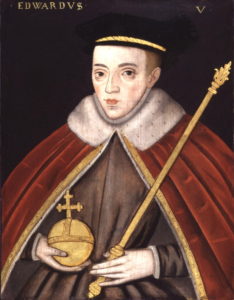
The cracks soon began to show as division united Edward IV’s former chamberlain Lord Hastings alongside Richard, Duke of Gloucester.
Richard however continued to pledge his loyalty to the young king and the Woodvilles were given no indication of the treacherous events that would follow. Thus, arrangements were made for the new young king to meet with Richard so as they could journey down to London together for Edward’s coronation on 24th June.
Meanwhile, Anthony Woodville, Edward’s uncle and the queen’s brother, known as Earl Rivers, arranged a meeting with Richard as they also journeyed from their base in Ludlow to London.
After dining together, the following morning Anthony Woodville and Richard Grey, who was Edward V’s older half-brother, found themselves targeted by Richard of Gloucester who had them arrested and taken to the north of England. They, alongside the king’s chamberlain Thomas Vaughan were sent away whilst the fate of poor young Edward was to be decided.
Richard Grey who was only a half-brother to the future king, related through their mother, had his land and offices seized from him and redistributed. Sadly, both Woodville and Richard Grey both met an untimely end at Pontefract Castle in June when they were both executed.
Edward meanwhile protested at the actions committed against his family and entourage, however Richard had Edward’s remaining party dismissed and escorted him down to London himself.
Edward’s mother, the queen, along with her daughters and Edward’s younger brother, took refuge at Westminster Abbey.
By now, King Edward V was in very different surroundings, forced to take up residence at the Tower of London. Edward V was placed in the Tower of London with his younger brother, Richard, Duke of York, for company. The younger brother had been taken from Westminster Abbey on the pretext that Richard was ensuring the younger brother’s attendance at Edward’s coronation.
The two royal boys, the current king and his heir were to become known as the Princes in the Tower, held in captivity and heavily guarded at the new royal lodgings.
The events that followed and their last days would remain shrouded in mystery.
There were some reports that people had witnessed two boys playing in the adjoining Tower gardens but in time their sightings became less and less frequent until they completely vanished.
In the meantime, the theologian Ralph Shaa gave a sermon in which he argued that Edward V was not legitimate as his parents’ marriage was invalidated by the former King Edward IV’s promise to marry Lady Eleanor Butler. Thus his marriage to Elizabeth Woodville did not produce legitimate heirs.
Such a supposition thus placed Richard, Duke of Gloucester as rightful heir.
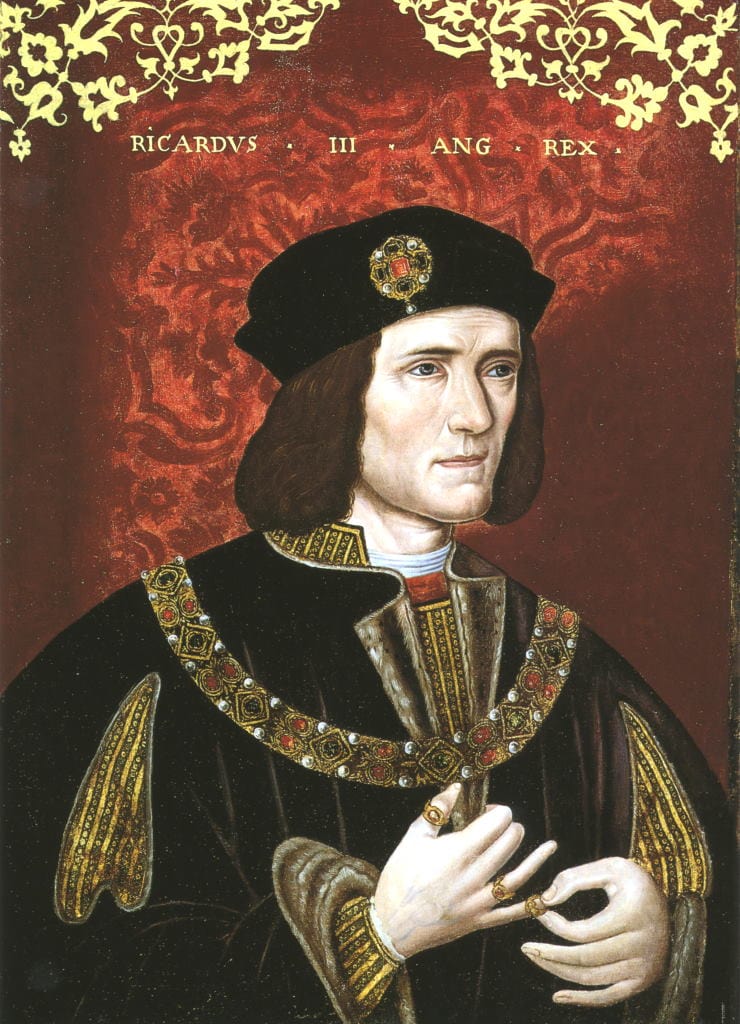
The new boy king, although not yet crowned, saw his reign come to an abrupt end on 26th June when parliament corroborated his uncle’s claim. Richard, Duke of Gloucester’s legitimacy held up in parliament and was confirmed by the Titulus Regius statute, which ratified Richard’s ascendancy to the throne.
His usurpation was further enhanced by a northern army who intimidated and oversaw his ascendancy from the watchful eye of Finsbury Fields.
Not long afterwards the two boys vanished forever.
King Richard III and his wife, Queen Anne were subsequently crowned at Westminster Abbey on 6th July 1483. With a new king in charge, the two princes in the tower were presumed murdered, never to be seen again.
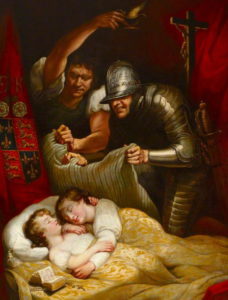 The Murder of the Princes in the Tower (from William Shakespeare’s ‘Richard III’, Act IV scene iii), by James Northcote
The Murder of the Princes in the Tower (from William Shakespeare’s ‘Richard III’, Act IV scene iii), by James Northcote
Whilst no one knows for sure, there is the assumption of Richard III’s guilt as he had much to gain from Edward V’s death.
Having said that, speculation continues to this day. Such a dramatic tale of betrayal, treachery and tragedy peaked the curiosity of many, including Thomas More, who wrote that they were smothered as they slept.
The sad demise of Edward V was also included in Shakespeare’s historical play, “Richard III”, in which Richard, Duke of Gloucester orders the murder of the two brothers.
In 1674, two skeleton remains, assumed to be the two brothers, were found in the Tower by workmen. Upon the discovery, the reigning king, Charles II had the remains placed in Westminster Abbey.
Several centuries later, these remains were tested without any conclusive results.
Such a mystery continues to intrigue and baffle, however, Edward V’s death was only part of a much bigger story.
Edward V’s sister, Elizabeth was to marry Henry VII, a marriage which would unite the Houses of York and Lancaster and usher in one of the most famous dynasties of all, the Tudors.
Jessica Brain is a freelance writer specialising in history. Based in Kent and a lover of all things historical.
